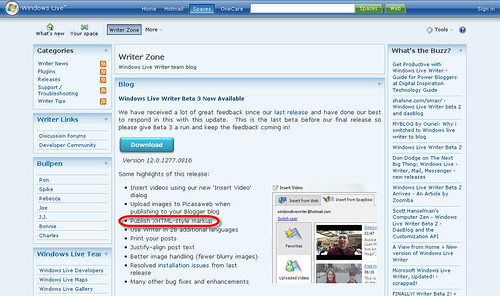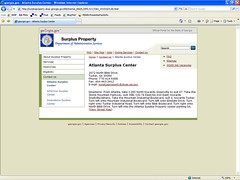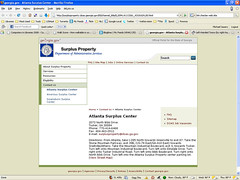Despite my upcoming classes on XHTML and CSS filling quickly, I still get funny looks from some when I tell them that in my classes I teach code, not tools like FrontPage or Dreamweaver. "It's still necessary" I say rather unconvincingly despite my intentions since they don't look convinced. Well, while reading
Dreaming in Code by Scott Rosenberg I discovered "
The Law of Leaky Abstractions", first described by Joel Spolsky.
In his blog post Spolsky is talking about programming languages but I think it applies to almost any software tool. The basic point is that whenever you use a tool (Dreamweaver) to create something else for you (XHTML/CSS) the tool is an abstraction of what you're you're doing. Whenever you involve an abstraction, there's always a chance of loosing something in the translation, a leak. The more level of abstractions you add, the more leaks and the more that's lost in the translations.
Here's the bit that was quoted in Dreaming in Code that's relevant to why I teach code:
One reason the law of leaky abstractions is problematic is that it means that abstractions do not really simplify our lives as much as they were meant to....
The law of leaky abstractions means that whenever somebody comes up with a wizzy new code-generation tool that is supposed to make us all ever-so-efficient, you hear a lot of people saying "learn how to do it manually first, then use the wizzy tool to save time." Code generation tools which pretend to abstract out something, like all abstractions, leak, and the only way to deal with the leaks competently is to learn about how the abstractions work and what they are abstracting. So the abstractions save us time working, but they don't save us time learning.
And all this means that paradoxically, even as we have higher and higher level programming tools with better and better abstractions, becoming a proficient programmer is getting harder and harder.
This is exactly the point I try to make when I "explain" to folks why I teach code instead of the tools. Maybe the next time I need to defend my methods I'll start by calling on The Law of Leaky Abstractions and see if that gets their attention.
Labels: webdesign







